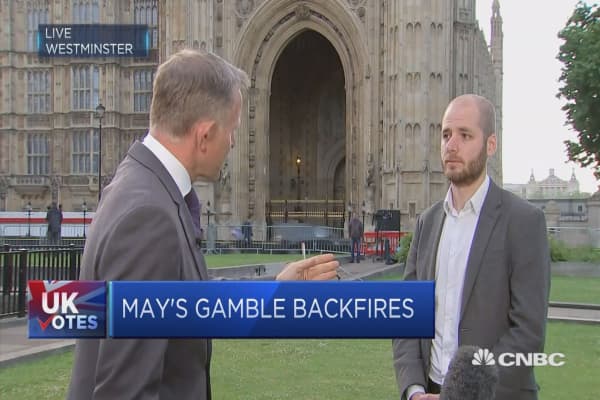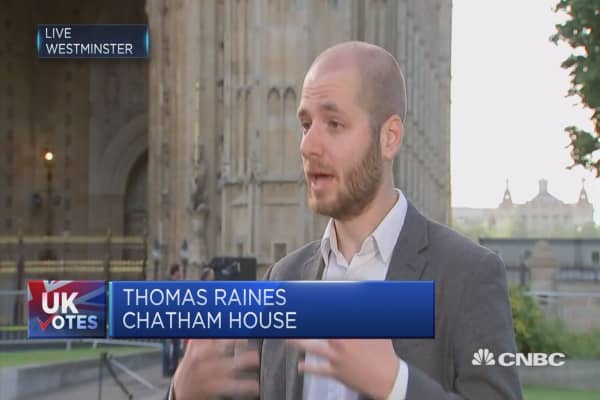The U.K. election has failed to give a decisive mandate to either the ruling Conservative Party or the opposition Labour Party, sparking more political uncertainty and dealing a major blow to Prime Minister Theresa May.
The official result is a hung Parliament with no party able to form a majority on its own. Here’s what happens next, according to the U.K. Parliament.
What happens when no party wins a majority?
The ruling Conservatives will remain in power while they try to negotiate a coalition or the government may attempt to try to govern with a minority of members of Parliament. Back in 2010, the last time there was a hung Parliament, the incumbent Labour government stayed in place until a majority government could be formed.
Will the party with the most seats automatically form the government?
By 7:30 a.m. London time, Prime Minister Theresa May’s ruling Conservative party had won 314 seats while the opposition Labour Party, led by Jeremy Corbyn, had 261 seats. Meanwhile, the Scottish National Party (SNP) had won 35 seats, the Liberal Democrats were at 12 and the Democratic Unionist Party had secured 10. Voter turnout was at 68.7 percent, according to the BBC.
How long can the negotiations last?
The U.K. has had hung Parliaments before. For what it’s worth, the Conservatives and the Liberal Democrats in 2010 finally formed a coalition five days after the elections. That same deal is very unlikely this time around as both parties now stand at polar opposites when it comes to the issue of Bexit.
What are the important upcoming events?
The first important date is June 13 when the Parliament reconvenes. The next important hurdle after that is the vote on amendments to the Queen’s speech, which is scheduled for June 19.
- Author – Neelabh Chaturvedi, special to CNBC.com

